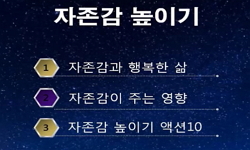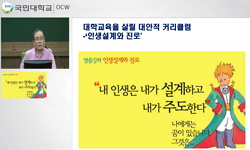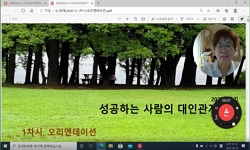Since the solidarity of the traditional community has collapsed, deaths in modern society are proceeding with privatization, banalization, and medicalization. In particular, 75 percent of Koreans are dying in medical institutions today, so the death i...
http://chineseinput.net/에서 pinyin(병음)방식으로 중국어를 변환할 수 있습니다.
변환된 중국어를 복사하여 사용하시면 됩니다.
- 中文 을 입력하시려면 zhongwen을 입력하시고 space를누르시면됩니다.
- 北京 을 입력하시려면 beijing을 입력하시고 space를 누르시면 됩니다.

죽음을 대하는 현대의학의 태도 비판- 어네스트 베커의 실존주의 심리학의 관점에서 = A Critical Examination of the Attitude of Modern Medicine toward Death - in the Perspective of Existentialist Psychology
한글로보기https://www.riss.kr/link?id=A104940778
-
저자
박중철 (원진재단 녹색병원)

- 발행기관
- 학술지명
- 권호사항
-
발행연도
2017
-
작성언어
Korean
-
주제어
현대의학 ; 의학적 무의미함 ; 죽음불안 ; 자존감 ; 실존주의 심리학 ; Modern Medicine ; Medical Futility ; Death Anxiety ; Self-esteem ; Existentialist Psychology
-
등재정보
KCI등재
-
자료형태
학술저널
-
수록면
39-76(38쪽)
-
KCI 피인용횟수
1
- 제공처
-
0
상세조회 -
0
다운로드
부가정보
다국어 초록 (Multilingual Abstract)
Since the solidarity of the traditional community has collapsed, deaths in modern society are proceeding with privatization, banalization, and medicalization. In particular, 75 percent of Koreans are dying in medical institutions today, so the death in hospitals has become a common occurrence. There is also a proliferation of medical futility in life-sustaining treatment, which is closely related to attitude of medicine toward death. Such attitude have several characteristics. First, the medical profession recognize death as a medical defeat, and they resist it through advanced technology. Second, such resistance is rationalizing through ‘Dogma’, such as ‘principles of ethics’ and ‘treatment guidelines’. This article analyze the medical futility relying on ‘technological possibility’ and ‘medical dogmas’ in perspective of ‘existentialist psychology’ which persist that Human beings overcome the fear of death through an attempt to be a hero. One of them, Ernest Becker, explained how human beings become heroes through the psychological mechanisms of ‘narcissism’ and ‘transference’. According to Becker, It is narcissism to regard one’s ability as basis of self-esteem, and transference is the identification by subjugate ones’ own self under superior groups or cultures. Modern medicine has depended on the technological narcissism, and subjugating under the dogmas(laws, principle of ethics, treatment guidelines) to preserve itself from the fear of death. Ultimately, these technicism and dogmatism have become the identity of modern medicine against inevitable death. This identity of medical practice ultimately justifies life-sustaining treatment by allowing it’s intervention to deprive patients’ sovereignty in their dying process. If the patient wants to refuse life-sustaining treatment, they should rely on the legal and ethical principles of the law. In this case, the death of a patient is because of its own abandonment, not because of medical failures. And medicine can preserve the identity which it have to struggle against death. Medicine now needs a new identity to protect its self-esteem without violating patients’ sovereignty over their dying process. In order to achieve this, it is necessary to move the goal of medical practice to helping the completion of life not artificial prolongation of life. Ultimately, this will serve as an opportunity for our society to renew the culture of death.
참고문헌 (Reference)
1 백승균, "호스피스 철학" 계명대학교출판부 2008
2 김정현, "현대에서 ‘죽음’의 의미" 인문학연구소 15 (15): 77-100, 2014
3 목광수, "행위지침 제시에 효과적인 생명의료윤리학적 방법론 모색: 비췀과 췰드리스의 논의를 중심으로" 철학연구회 (105) : 81-110, 2014
4 김명숙, "한국인의 죽음에 대한 인식과 태도에 관한 철학적 고찰 Ⅱ" 새한철학회 64 (64): 43-69, 2011
5 신교남, "하이데거의 존재론에 나타난 죽음의 현상학적 의미와 죽음교육" 한국교육철학회 (50) : 221-244, 2013
6 배현아, "표준 치료 지침서(Clinical Practice Guideline)의 의료법학적 의의" 대한의료법학회 9 (9): 181-207, 2008
7 Thomasma, D., "탄생에서 죽음까지" 문예출판사 2003
8 Becker, E., "죽음의 부정" 인간사랑 2008
9 천선영, "죽음을 살다 _ 우리 시대 죽음의 의미와 담론" 나남 2012
10 Elias, N., "죽어가는 자의 고독" 문학동네 2012
1 백승균, "호스피스 철학" 계명대학교출판부 2008
2 김정현, "현대에서 ‘죽음’의 의미" 인문학연구소 15 (15): 77-100, 2014
3 목광수, "행위지침 제시에 효과적인 생명의료윤리학적 방법론 모색: 비췀과 췰드리스의 논의를 중심으로" 철학연구회 (105) : 81-110, 2014
4 김명숙, "한국인의 죽음에 대한 인식과 태도에 관한 철학적 고찰 Ⅱ" 새한철학회 64 (64): 43-69, 2011
5 신교남, "하이데거의 존재론에 나타난 죽음의 현상학적 의미와 죽음교육" 한국교육철학회 (50) : 221-244, 2013
6 배현아, "표준 치료 지침서(Clinical Practice Guideline)의 의료법학적 의의" 대한의료법학회 9 (9): 181-207, 2008
7 Thomasma, D., "탄생에서 죽음까지" 문예출판사 2003
8 Becker, E., "죽음의 부정" 인간사랑 2008
9 천선영, "죽음을 살다 _ 우리 시대 죽음의 의미와 담론" 나남 2012
10 Elias, N., "죽어가는 자의 고독" 문학동네 2012
11 Maslow A. H., "존재의 심리학" 문예출판사 2005
12 Heidegger, M., "존재와 시간" 동서문화사 1992
13 신동일, "제도적 위험과 규범적 자율성 -최근 의생명관련 법률에서 자기결정권의 확대 경향을 중심으로-" 비교법학연구소 50 : 217-258, 2017
14 Kobleross, E., "인간의 죽음" 분도출판사 1979
15 박형욱, "인간의 생명과 연명치료 중단" 8-35, 2010
16 Micheal de Ridder, "우리는 어떻게 죽고 싶은가?" 학고재 2011
17 박승숙, "오토 랑크, 정신분석학계의 이단자" 159-169, 2006
18 배병훈, "어네스트 베커의 '죽음부정'과 '종교성' 연구 : 스티브 잡스의 오이디푸스 프로젝트적인 삶을 중심으로" 서강대학교 대학원 2014
19 김재영, "어네스터 베커(Ernest Becker, 1924-1974)의 죽음학과 종교" 한국종교학회 75 (75): 1-36, 2015
20 홍경자, "실존철학의 죽음이해" 철학연구소 35 : 9-37, 2013
21 박찬국, "실존철학의 인간이해" 16 : 262-278, 2003
22 Levina, E., "시간과 타자" 문예출판사 1996
23 Solomon, S., "슬픈 불멸주의자" 흐름출판 2015
24 황임경, "생명의료윤리에서 서사(narrative)의 역할과 의의" 한국생명윤리학회 12 (12): 1-18, 2011
25 최경석, "생명윤리와 철학 : 철학적 대립과 새로운 생명윤리학을 위한 철학의 과제" 한국생명윤리학회 14 (14): 15-28, 2013
26 이인영, "생명윤리법에서의 도덕성과 합법성 논의 - 생명윤리법에서 정언적 원리의 정초와 관련해서 -" 한국생명윤리학회 12 (12): 87-109, 2011
27 유용식, "사별한 노인이 인식하는 좋은 죽음에 관한 현상학적 연구" 한국지역사회복지학회 (62) : 1-31, 2017
28 서동욱, "사르트르에서 병리적 의식과 자기기만" 한국현상학회 (57) : 5-25, 2013
29 Fumio, Y, "병원에서죽는다는 것" 잇북 2011
30 오호택, "법원이야기" 살림출판사 2011
31 Pillay S. S., "두려움, 행복을 방해하는 뇌의 나쁜 습관" 웅진지식하우스 2011
32 김정현, "니체사상과 오토 랑크의 심리학 -랑크의 니체수용을 중심으로-" 한국니체학회 (16) : 131-160, 2009
33 김민희, "노인접촉, 노인에 대한 태도 및 죽음불안이 대학생의 노화불안에 미치는 영향" 한국문화및사회문제심리학회 19 (19): 435-456, 2013
34 조한욱, "노먼 브라운의 사상" 중앙사학연구소 (42) : 353-369, 2015
35 고윤석, "국내 병원의 연명치료 현황" 대한의사협회 55 (55): 1171-1177, 2012
36 정수남, "공포, 개인화 그리고 축소된 주체 : 2000년대 이후 한국사회의 일상성" 한국학중앙연구원 33 (33): 329-357, 2010
37 최종덕, "『문화와 건강』 『의철학 입문』 『의료해석학과 생명현상학』" 한국의철학회 23 : 53-81, 2017
38 Kee, H. C., "Medicine, Miracle and Magic in New Testament Times" Cambridge University Press 1986
39 Hopkins, J. B., "Everyday death: how do nurses cope with for dying people in hospital?" 42 (42): 125-133, 2005
40 Kang, S. K., "College students’ knowledge on aging" 5 (5): 41-51, 2002
동일학술지(권/호) 다른 논문
-
19세기 공감각(synesthesia)과 수의 공간적 인지(number-form)에 대한 생리학철학
- 한국의철학회
- 이승원
- 2017
- KCI등재
-
- 한국의철학회
- 김원중
- 2017
- KCI등재
-
孟子 心性論을 중심으로 한 간호에서의 돌봄의 윤리에 대한 철학적 탐색
- 한국의철학회
- 고희선
- 2017
- KCI등재
-
과학과 기예 사이의 교량으로서 위약효과- 의학시대별 위약과 위약효과에 대한 역사적 고찰
- 한국의철학회
- 임영채
- 2017
- KCI등재
분석정보
인용정보 인용지수 설명보기
학술지 이력
| 연월일 | 이력구분 | 이력상세 | 등재구분 |
|---|---|---|---|
| 2023 | 평가예정 | 재인증평가 신청대상 (재인증) | |
| 2020-01-01 | 평가 | 등재학술지 선정 (재인증) |  |
| 2019-12-01 | 평가 | 등재후보로 하락 (계속평가) |  |
| 2016-01-01 | 평가 | 등재학술지 유지 (계속평가) |  |
| 2012-01-01 | 평가 | 등재학술지 선정 (등재후보2차) |  |
| 2011-01-01 | 평가 | 등재후보 1차 PASS (등재후보1차) |  |
| 2009-01-01 | 평가 | 등재후보학술지 선정 (신규평가) |  |
학술지 인용정보
| 기준연도 | WOS-KCI 통합IF(2년) | KCIF(2년) | KCIF(3년) |
|---|---|---|---|
| 2016 | 0.27 | 0.27 | 0.43 |
| KCIF(4년) | KCIF(5년) | 중심성지수(3년) | 즉시성지수 |
| 0.51 | 0.46 | 1.001 | 0 |




 스콜라
스콜라





